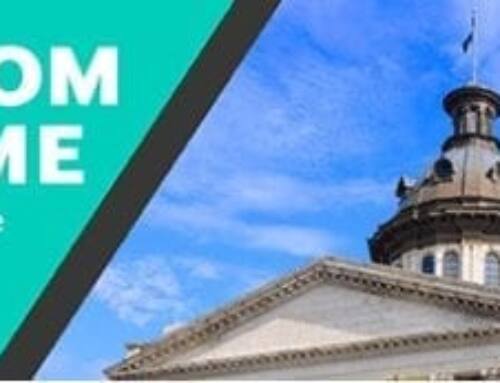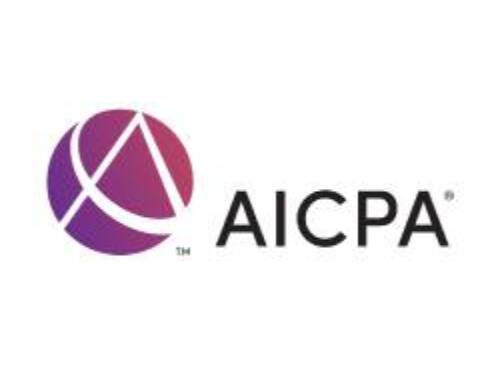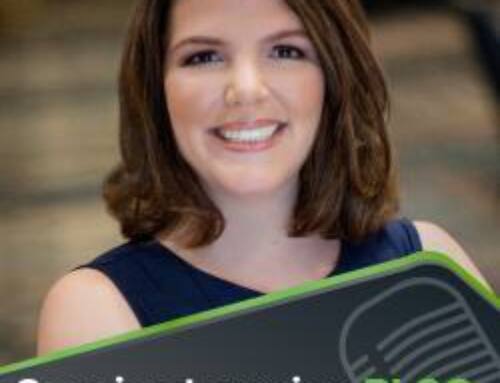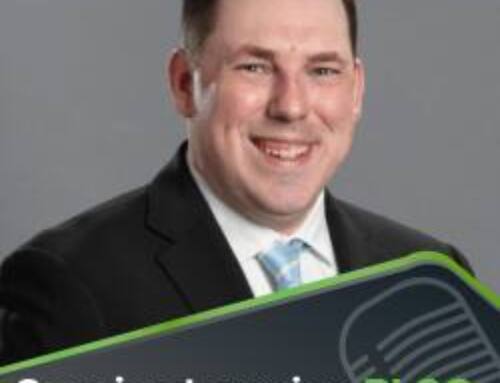Many outdated areas are being updated, including mobility, education and CPA Exam requirements
By David Knoble, CPA, CGMA | SCACPA Member since 2010
In addition to my role as vice chair of the Governmental Affairs Committee, I am leading a task force that has been proposing changes to South Carolina statutes that affect our profession. We began this process last August, meeting regularly to bring current concepts into our statutes. During our process, we solicited feedback from many different groups affected by these statutes, including South Carolina educators and a prior Board Chair of NASBA. In addition, LLR was helpful by providing us with statistics and history related to Public Accountants and Accounting Practitioners, also covered by these statutes. Most recently, we presented a draft to the South Carolina Board of Accountancy at their February 5 video conference meeting. During this three-hour discussion, we received some great questions and feedback.
As we finish incorporating the suggestions we have received from all these groups, as well as the AICPA and NASBA, our team is at work polishing things for the Legislature. The SCACPA Executive Committee and members of the Governmental Affairs Committee have also reviewed our work.
While the legislative process might mean this could take as long as two years to pass, we will assist our legislators as everything advances. Without question, this has been one of the most challenging efforts in which I have participated. Thankfully, we have an incredible group of volunteers to get us so close to the finish line.
There are many important changes to our current statutes, and I’d like to provide a synopsis of a few of the most impactful changes we have proposed. Remember that through the process, changes will most likely be introduced by legislators.
1. LICENSEES RELOCATING TO SOUTH CAROLINA PROPOSALS
Improvements to SECTION 40-2-240 are designed to ensure licensed CPAs who worked within the State under mobility can relocate to this State without additional licensing requirements. The current interpretation of this section has created an unfair advantage to non-resident CPAs working under mobility. The combined improvements in this section utilize the definition of substantial equivalency and modification in SECTION 40-2-35 to remove SC-specific roadblocks to licensure promoting the profession in SC and, as a result, providing positive economic possibilities.
2. ALIGNING FIRM MOBILITY WITH INDIVIDUAL MOBILITY PROPOSALS
Adjustments made in SECTION 40-2-30 allow for firm mobility and align firm mobility with individual mobility, removing an exception that currently exists.
3. MOBILITY DEFINITIONS PROPOSALS
SECTION 40-22-245 defines the requirements of mobility or the ability of a CPA to practice within South Carolina if licensed outside of this State. Specific language was removed to implement the definition of substantial equivalency, better aligning mobility and reciprocity.
4. EDUCATION AND CREDIT HOURS PROPOSALS
Improvements to the licensing requirements in SECTION 40-2-35 adjust the education requirements to align with the Uniform Accountancy Act.
The required 150 credit hours of education for licensure remains intact. The number of defined course credits is reduced from 36 to 24 hours in the specific accounting courses and other required courses categories. The credit hour requirements to sit for the Exam remains unchanged.
Official transcripts from any university holding a current accreditation from an accrediting body approved by the U.S. Department of Education shall be accepted to meet the educational requirements. Modifications in this section further empower the Board to review and determine if a course or program of study is substantially equivalent.
Anticipating the new licensing structure described in the NASBA and AICPA’s joint CPA Evolution process, we made minor adjustments to the required examination language. We also removed language regarding testing windows to align with the continuous testing model.
Adjustments to experience requirements allow verification by a CPA with direct knowledge rather than direct supervision by a CPA to better meet today’s employment needs. Redesigned experience requirements for educators are a direct result of the real-life structural environment educators face.
5. OWNERSHIP OF WORK AND DOCUMENTS PROPOSALS
Clarification as to the ownership of work and documents is provided in SECTION 40-2-190. Changes to this section directly relate to updates within the AICPA Code of Ethics and are designed to reduce confusion within the profession and add additional clarity for the public.
6. THE SC ATTORNEY GENERAL’S OFFICE OPINION
SECTION 40-2-40 received general clean-up to align with a recent opinion from the SC Attorney General’s office and to utilize definitions rather than unique language. This results from the SCACPA Board vote last year to request an opinion from the Attorney General on the ability of Board of Accountancy members to talk with CPAs and the public in general. The opinion provides clarity for the LLR, the Board and CPAs allowing interaction among members of our profession. Below is a quote contained in the opinion that is dated January 11, 2021:
“It is this Office’s opinion that the S.C. FOIA (Freedom of Information Act) does not limit a citizen’s ability to speak with a member of a public body solely to when the public body holds open meetings.”
7. RENEWAL AND REINSTATEMENT OF LICENSES PROPOSAL
Readability was a focus when modifying SECTION 40-2-250, renewal and reinstatement of licenses must be clearly defined and documented. Restructuring this section makes the requirements, due dates, and required communications clear to both the licensee and the Board.
8. EMERITUS STATUS PROPOSAL
Emeritus status SECTION 40-2-270 restricts the rights of a licensee without a reasonable method to return to the profession. Language precluding the licensee from rejoining the profession was removed.
9. CPA FIRMS WITH MISLEADING NAMES PROPOSAL
There has been significant confusion about misleading professional firm names in SECTION 40-2-335. Utilizing language provided within the Unified Accountancy Act clarifies the rules and prohibitions by specifically outlining a misleading CPA Firm name.
10. BOA SEATING REPRESENTATION PROPOSAL
Changes to SECTION 40-2-10 would update the composition of the Board of Accountancy (BOA), aligning representation to the total licensees’ proper ratios. This change would remove one seat currently populated by a licensed Accounting Practitioner or Public Accountant and replace that seat with an at-large resident Certified Public Accountant. An additional change to this section gives the BOA a voice in the termination of any staff directly serving the BOA.
11. CREATING SPECIFIC DEFINITIONS IN THE STATUTES
SECTION 40-2-20 contains statute-specific definitions. Work done within this section is designed to clarify and update definitions to meet the profession’s current use.
Updates to current definitions include definitions for compilation, substantial equivalency, and State (to include other U.S territories).
Added definitions include electronic files, client records, CPA prepared records, CPA work products, CPA work papers, owner, firm ownership, non-CPA owners, renewal notification date, renewal due date, and renewal lapse date.
David Knoble, who is a founding member and partner of Knoble Ingle CPAs in Rock Hill, has more than 25 years of experience as a North and South Carolina CPA, as well as a BS in Business Administration and Masters of Accounting from Kenan-Flagler at UNC Chapel Hill. His ‘Big Six’ audit experience and real-estate experience as the CFO of a $100 million real estate company, assisting in the ultimate sale of the company to a southeastern regional builder, has given David significant industry experience. He is a SCACPA Board member and vice chair of the Governmental Affairs Committee.




